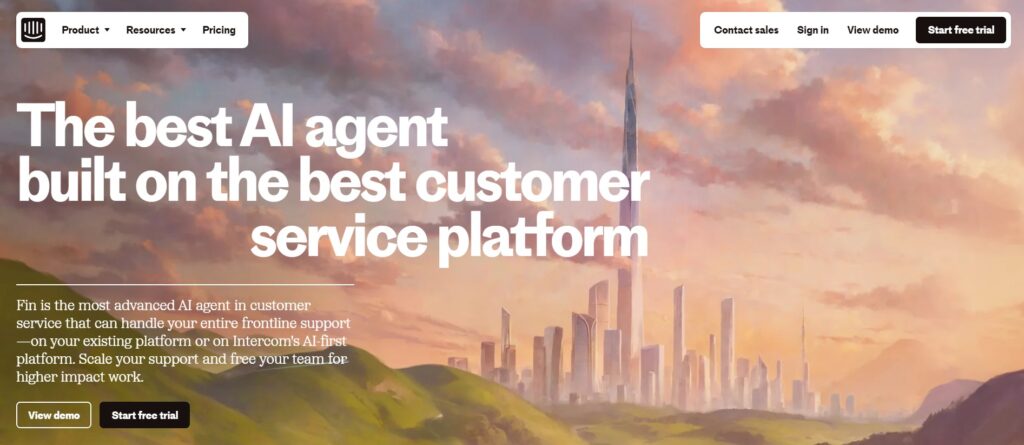AI SaaS ideas and tools to run a SaaS business
10 AI SaaS ideas and tools to run a SaaS business anywhere in the world.
The demand for AI-powered software-as-a-service (SaaS) products is higher than ever. Using artificial intelligence can simplify processes, boost customer engagement, and lead to new business opportunities.
with the integration of Artificial Intelligence (AI), the potential to scale and innovate has become limitless. Running a SaaS business powered by AI offers incredible opportunities to streamline operations, enhance customer experiences, and reach a global audience. Below are some innovative AI SaaS ideas and essential tools to help you build and run a SaaS business from anywhere in the world.

Why use AI software?
AI software offers a wide range of benefits that can significantly enhance both individual and business operations. Here are some key reasons to use AI software:
Automation of Repetitive Tasks
AI can automate mundane and repetitive tasks that would typically require significant human effort. This frees up valuable time for employees to focus on more strategic activities. For example, AI-powered chatbots can handle customer inquiries, AI tools can process data, and automated marketing software can send personalised campaigns without manual intervention.
Improved Efficiency and Productivity
AI software is capable of processing large amounts of data at high speeds, which helps increase productivity. Whether it’s managing inventory, analysing customer behaviour, or streamlining workflows, AI systems can optimise processes, reduce errors, and ensure tasks are completed more efficiently than human workers alone.
Data Analysis and Insights
AI excels at data analysis. It can examine massive datasets and identify patterns, trends, and correlations that may not be immediately obvious. This allows businesses to make more informed decisions. For example, AI can predict customer preferences, market trends, and financial outcomes, enabling businesses to develop more effective strategies.
Enhanced Personalisation
AI enables businesses to provide a more personalised experience for their customers. By analysing data from customer interactions, AI can offer tailored recommendations, content, or product suggestions, improving user satisfaction and increasing the likelihood of conversions. This is particularly useful in industries like e-commerce, entertainment, and digital marketing.
Cost Reduction
While the initial investment in AI may seem high, it can lead to significant long-term cost savings. By automating tasks, improving efficiency, and reducing human error, businesses can cut operational costs. Additionally, AI can help optimise resource allocation, allowing businesses to make better use of their financial and human resources.
Scalability
AI solutions can scale with the growth of a business. As a business expands, AI software can handle increasing amounts of data and complex tasks without requiring significant additional human resources. This scalability makes AI a vital tool for businesses looking to grow and adapt to changing demands.
Enhanced Customer Experience
AI-driven tools such as chatbots, virtual assistants, and recommendation engines can greatly improve customer service. AI-powered chatbots, for example, provide instant responses to customer inquiries, even outside business hours, ensuring that customers have a seamless experience. AI tools can also help with predictive support, anticipating customer needs before they are explicitly communicated.
AI SaaS ideas and tools
1. Automated Customer Support Solutions
AI-powered customer support platforms are transforming the way businesses interact with customers. By using natural language processing (NLP) and machine learning, automated support solutions can respond to customer queries in real time, handle common requests, and escalate complex issues to human agents as needed.
Key Tools:
- Intercom: With AI-enhanced chatbots, Intercom can provide customers with immediate assistance, collect data, and even handle basic queries without human intervention.
- Zendesk: This customer support suite incorporates AI to help automate workflows and improve response times.

Creating a SaaS product focused on automated customer support can benefit businesses by reducing support costs and enhancing user satisfaction. For example, developing an AI-driven chatbot that integrates with popular CRMs could streamline interactions across multiple communication channels.
2. Predictive Analytics Platforms
Predictive analytics is one of the most valuable applications of AI, allowing businesses to make data-driven decisions by forecasting trends, customer behaviours, and market shifts. For companies that deal with vast amounts of data, predictive analytics SaaS solutions provide an edge by turning raw data into actionable insights.
Key Tools:
- Google Cloud AI Platform: This tool offers a comprehensive suite of machine learning services that can be leveraged for predictive analytics.
- Tableau: Known for its advanced data visualisation, Tableau can be integrated with AI models to interpret complex data and predict trends.
Developing a predictive analytics SaaS platform can cater to industries like finance, retail, and healthcare, where decisions rely heavily on accurate forecasting. By offering an easy-to-use, cloud-based solution, you can help businesses make smarter decisions faster.
3. AI-Driven Content Generation Tools
Content remains essential for marketing, but producing high-quality material regularly can be time-consuming and expensive. AI content generation platforms provide businesses with a solution, offering tools for blog posts, social media content, email copy, and more, powered by natural language generation (NLG).
Key Tools:
- Jasper: Jasper is an AI writing assistant capable of generating various content types, from blog posts to social media updates, with minimal human input.
- Copy.ai: This tool leverages machine learning to help users generate high-quality content quickly.

Developing a content generation SaaS platform that supports multiple languages or industry-specific copy can be highly lucrative. You could even add features that help users optimise their content for SEO, making it easier for businesses to reach their target audience.
4. AI-Powered Sales and Marketing Automation
Sales and marketing teams rely on tools that help them reach and convert leads efficiently. AI-powered automation can enhance lead scoring, target the right audiences, and personalise content based on customer behaviour. A SaaS product focused on sales and marketing automation can transform how businesses engage with customers.
Key Tools:
- HubSpot: HubSpot offers AI-powered tools for lead scoring, email marketing, and sales forecasting, which can be invaluable for growing SaaS businesses.
- Marketo: Known for its marketing automation capabilities, Marketo leverages AI to optimise lead nurturing and customer engagement strategies.
Building a SaaS platform that automates marketing and sales processes with AI could make a significant impact for businesses looking to optimise their outreach efforts. You could include features like AI-driven content recommendations, predictive lead scoring, and personalised email campaigns.
5. Personalised E-Learning and Training Platforms
With e-learning on the rise, there is a growing demand for personalised training experiences. AI can be used to create adaptive learning paths, assess learners’ progress, and provide custom feedback. A SaaS platform that offers personalised training can cater to corporates, educational institutions, and individuals looking to upskill.
Key Tools:
- Coursera for Business: This platform uses AI to deliver personalised learning paths, making it ideal for companies that want to train their workforce.
- EdApp: With AI-driven microlearning features, EdApp enables course creators to build tailored learning modules that adapt to learners’ progress.

Creating an AI SaaS platform for e-learning could include features such as adaptive assessments, progress tracking, and personalised content recommendations. With a SaaS product like this, you can help organisations save time and increase engagement by offering tailored educational experiences.
Running a SaaS Business with AI Tools
Running a SaaS business successfully requires a mix of innovation, reliability, and scalability. Here are a few additional AI tools that can help you operate and manage your SaaS business from anywhere in the world:
- Google Analytics for data insights and customer behaviour tracking.
- Stripe for AI-enhanced payment processing that ensures security and fraud detection.
- Notion for AI-powered project management, making it easy to track progress and communicate with team members remotely.
Final Thoughts
The possibilities for integrating AI into a SaaS business are endless, and the tools available today make it easier than ever to create innovative, efficient, and scalable solutions.
As I look at the potential to develop AI-driven platforms—whether for automating customer support, enhancing predictive analytics, or generating high-quality content—I can’t help but feel excited about the opportunities that lie ahead. With the right tools, like those I’ve explored here, it’s not only possible to run a successful SaaS business but to do so from anywhere in the world.
The key is to stay adaptable, keep innovating, and leverage AI to create real value for businesses and users alike. The future of SaaS is powered by AI, and I’m ready to be part of that journey.


















